Continuing my series of exploring South Korea, we are back on the mainland now. After returning from our 3-day trip to Jeju Island we decided to go up to Seoul for the day to explore the capital take in all the sights and visit the largest fish market in South Korea, Noryangjin Fish Market. So the plan was to drive over to the nearby city of Cheongju and take the KTX High-Speed Rail up to Seoul. This turned a 2-hour drive without traffic into a 40-minute train ride. The train travels at an average speed of 305kmph(190mph) and usually costs under $25 per person for a round trip from Seoul to Cheogju.
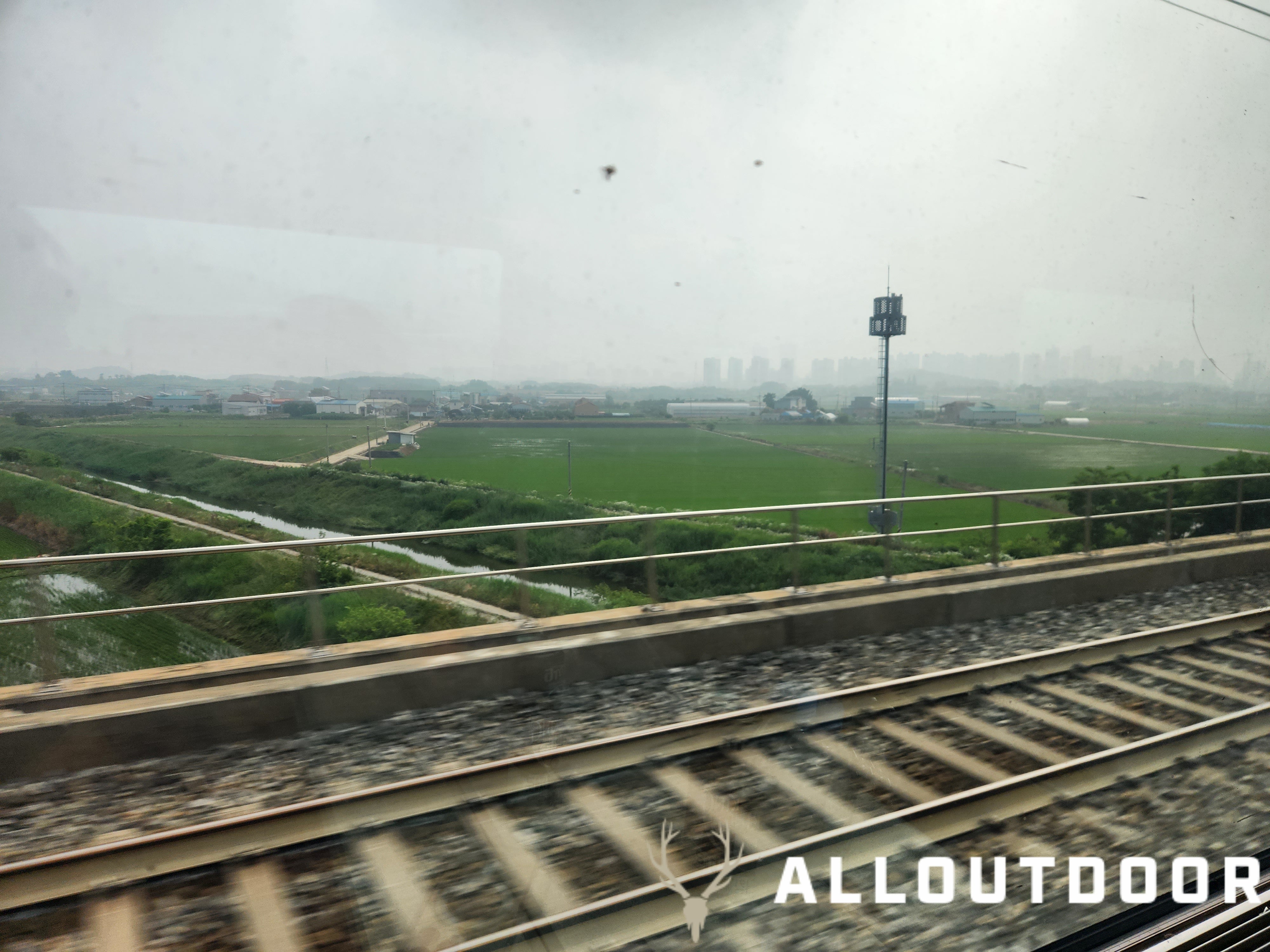
After our relatively brief and fast train ride, we got out at Seoul Central Train Station and walked over to Gyeongbokgung Palace, the royal palace of the Joseon Dynasty that is right in the middle of the city. While most of the palace was systematically destroyed during the Japanese occupation in the early 20th century. The Palace grounds have been gradually restored since the 1990s back to their original state. If you’re in Seoul I really recommend spending a couple of hours exploring the massive complex, there is a small entry fee but I feel you should at least visit it once.
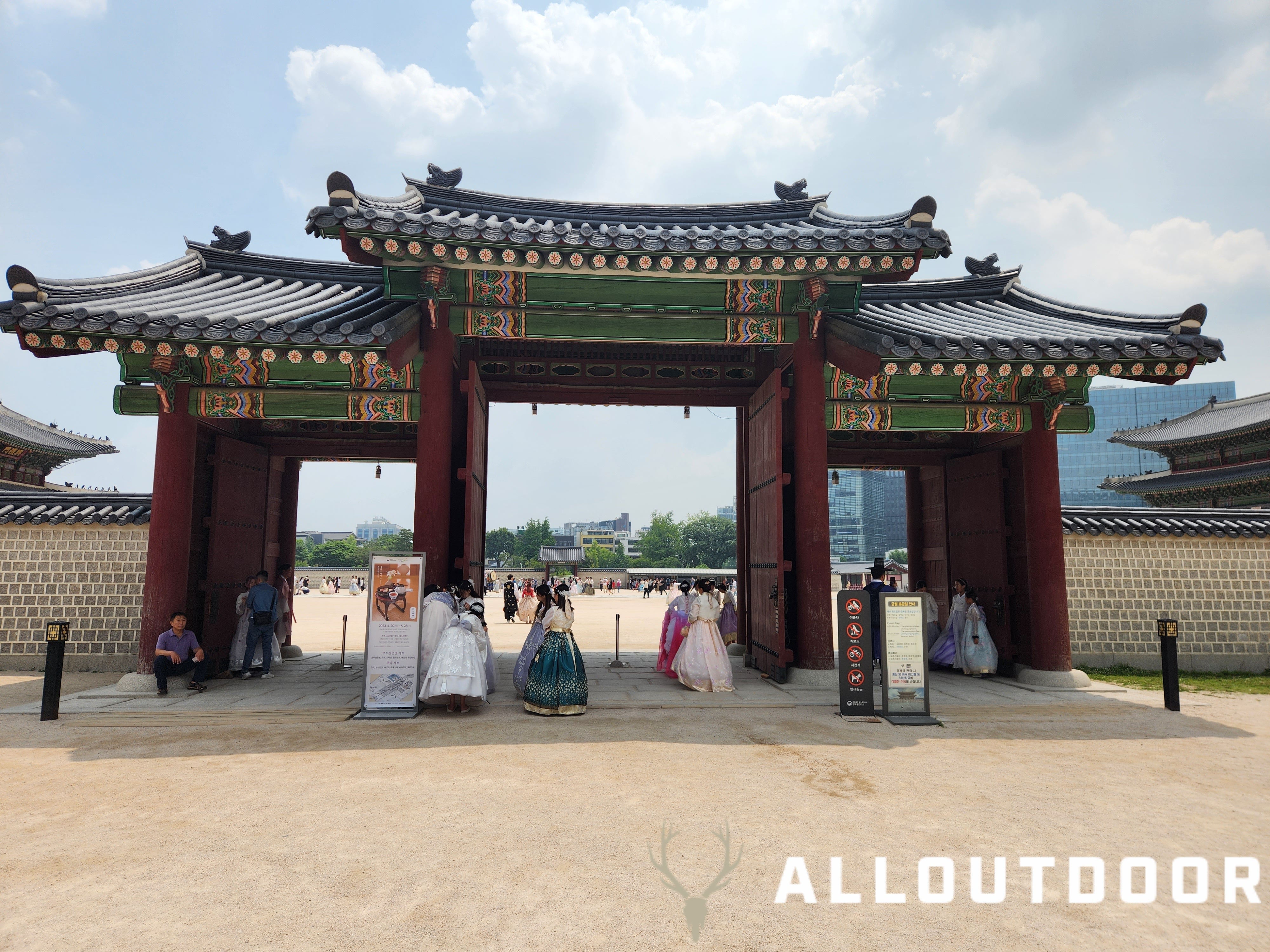
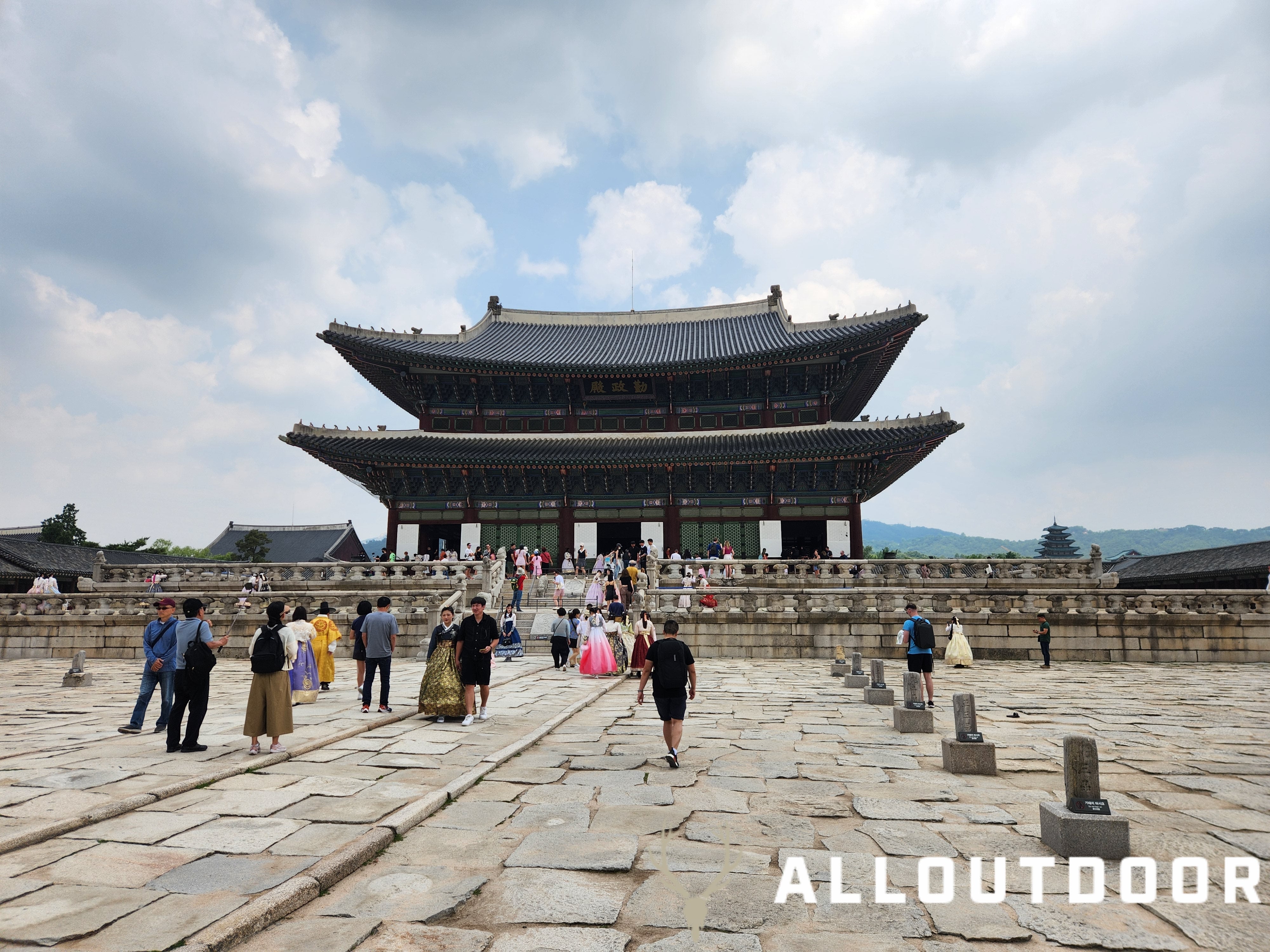
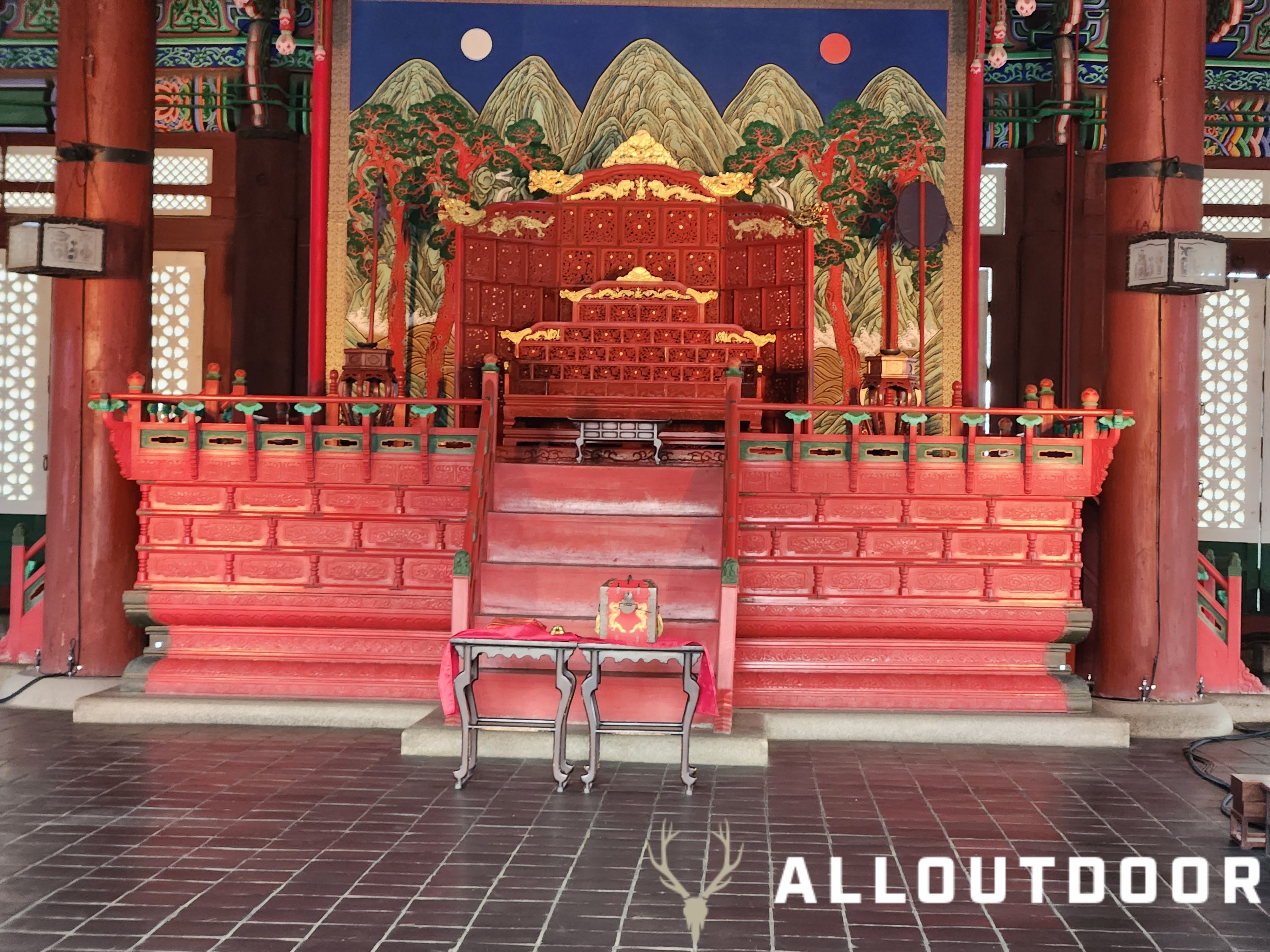
Also on the palace grounds in the northwest corner, there is the National Folk Museum of Korea. The museum is full of exhibits that illustrate the history of traditional life for the Korean people. We spent another hour here just looking through historical photos dating back to the late 19th century. An exhibit that really resonated with me was one showing the historical and current importance of three species of fish in Korean culture. Jogi (조기) – Yellow Croaker, Myeongtae (명태) – Alaska Pollock, and Myulchi(멸치) – Anchovy have fed the Korean people for millennia, the croakers and pollock have ritual and religious significance as well. Beyond just the history of these fish, the exhibit showed more modern aspects as well, such as the economic importance of the current fisheries.
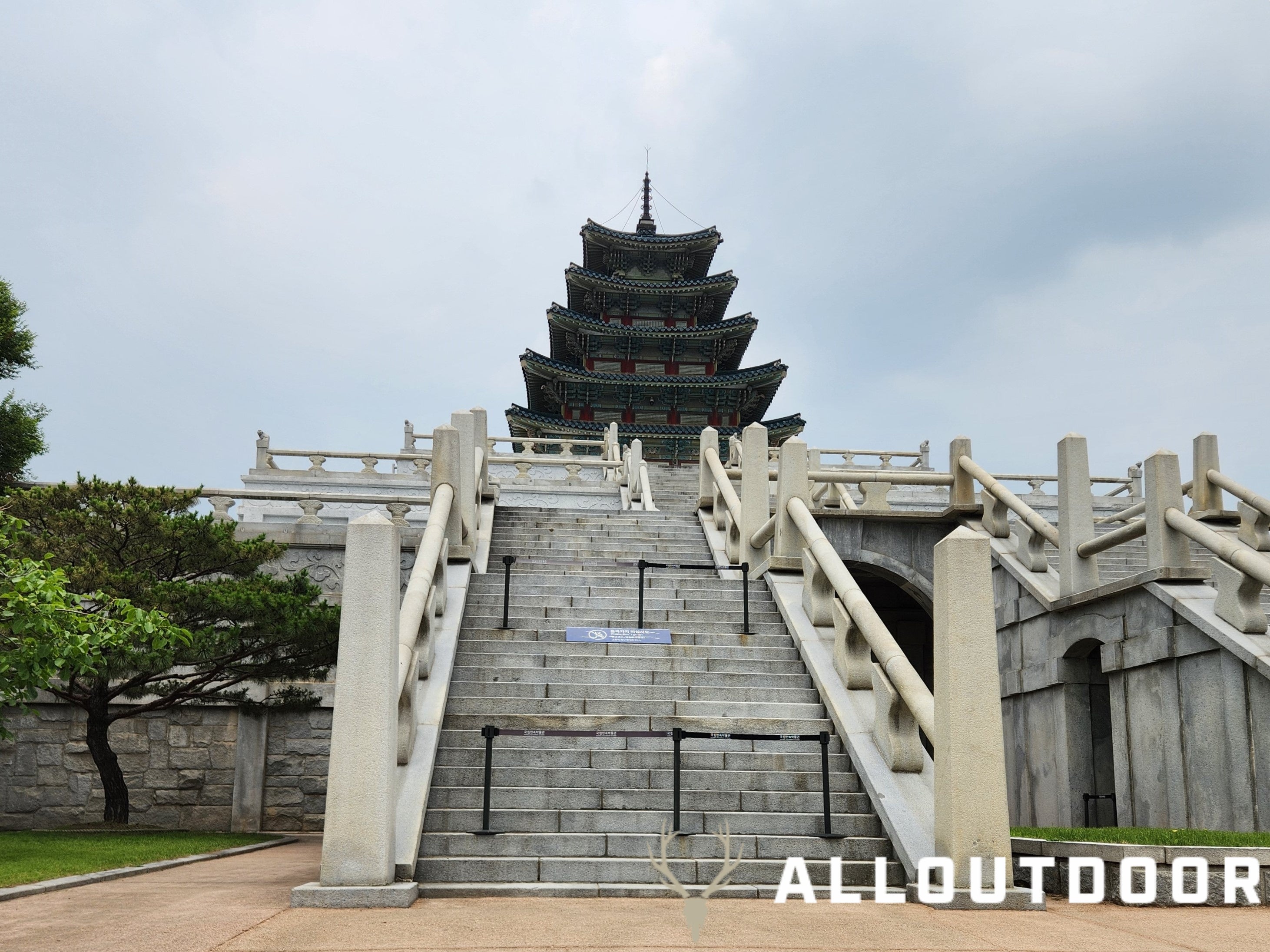
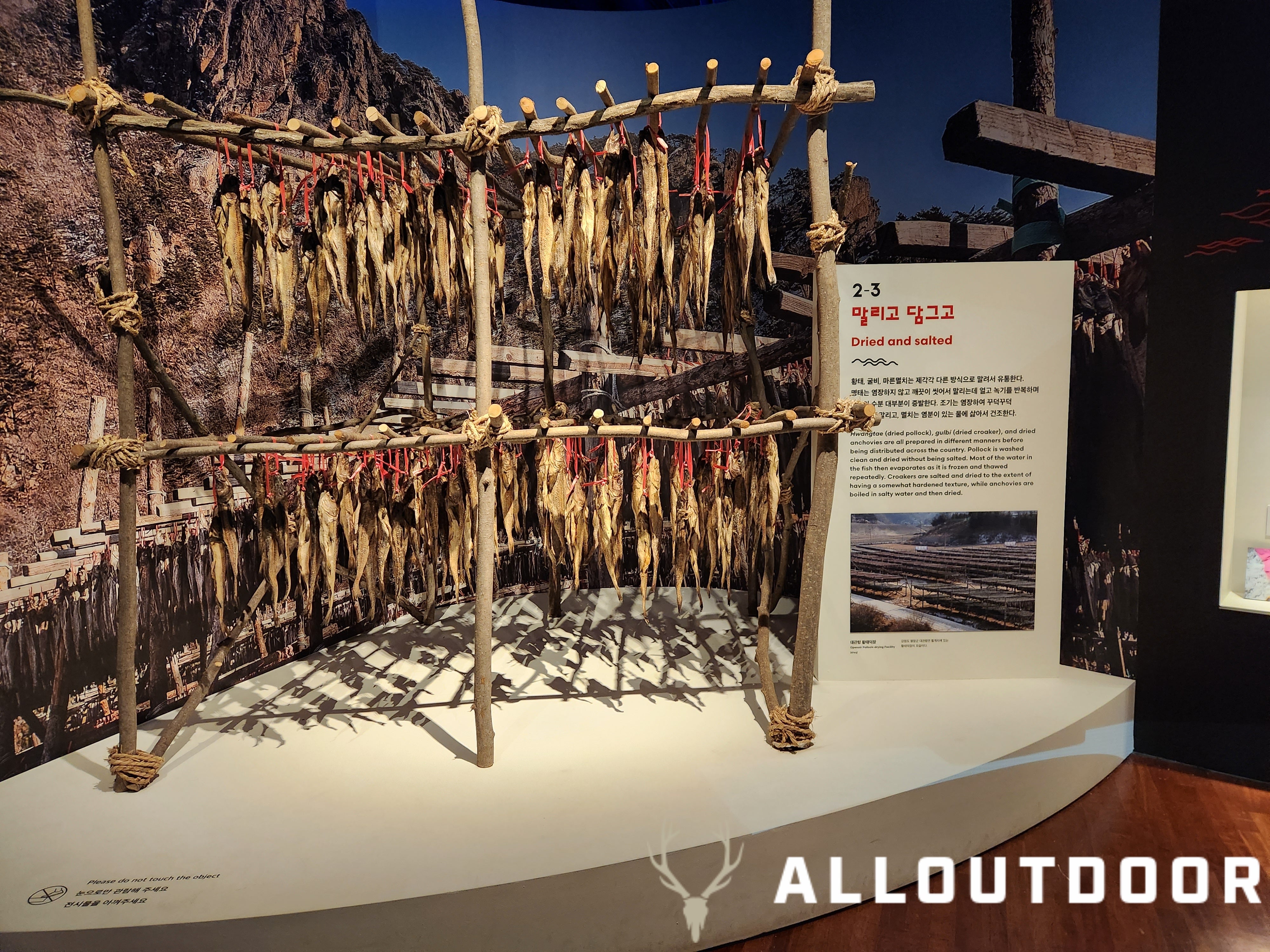
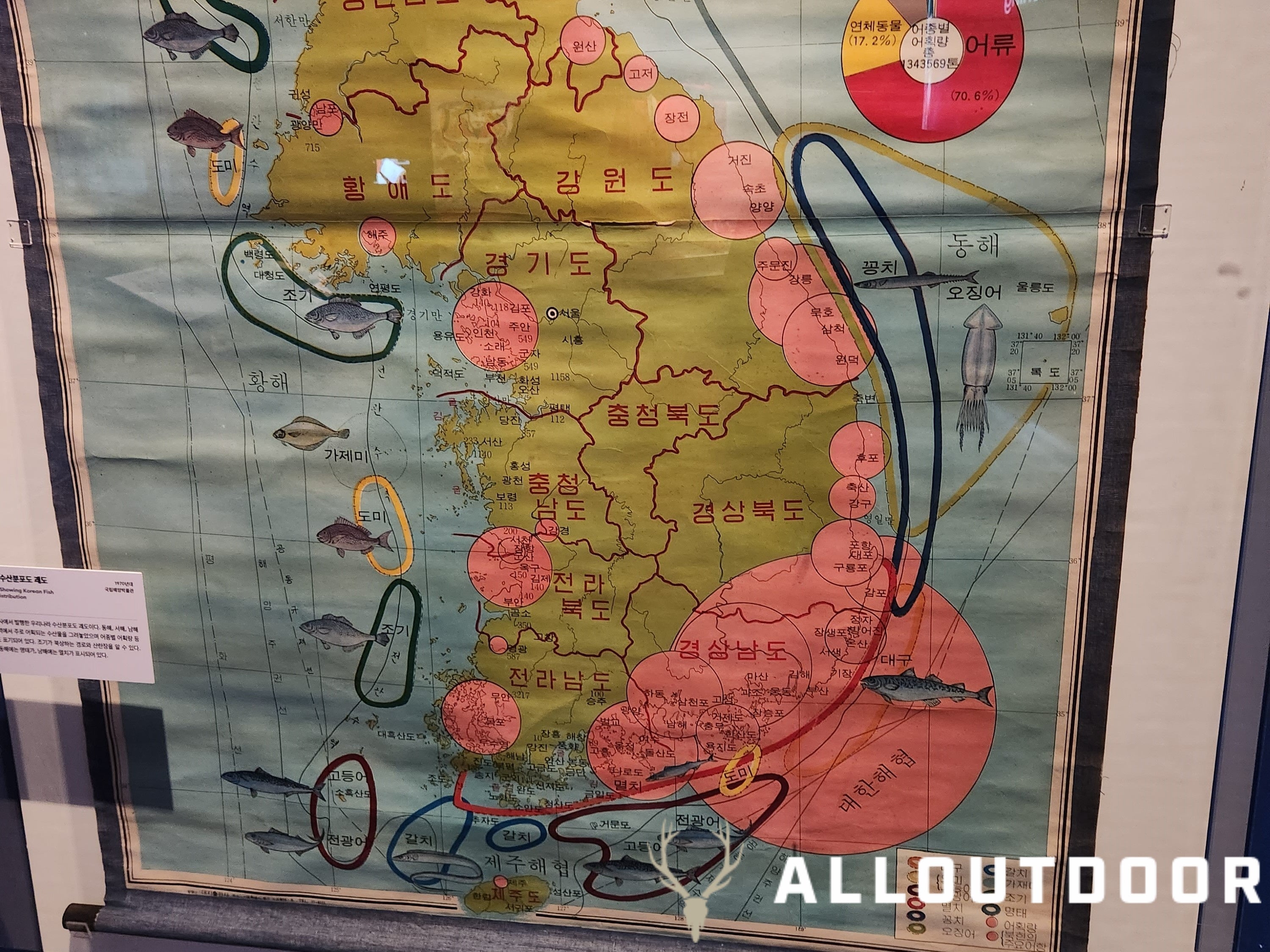
After we did our rounds at the folk museum, we went off to get some lunch and explored other areas of the city as well. Visiting a few different shopping streets full of interesting stops. After doing that for most of the afternoon, I had one last stop I needed to go to for our visit to Seoul. Noryangjin Fish Market, the oldest and largest fish market in South Korea.
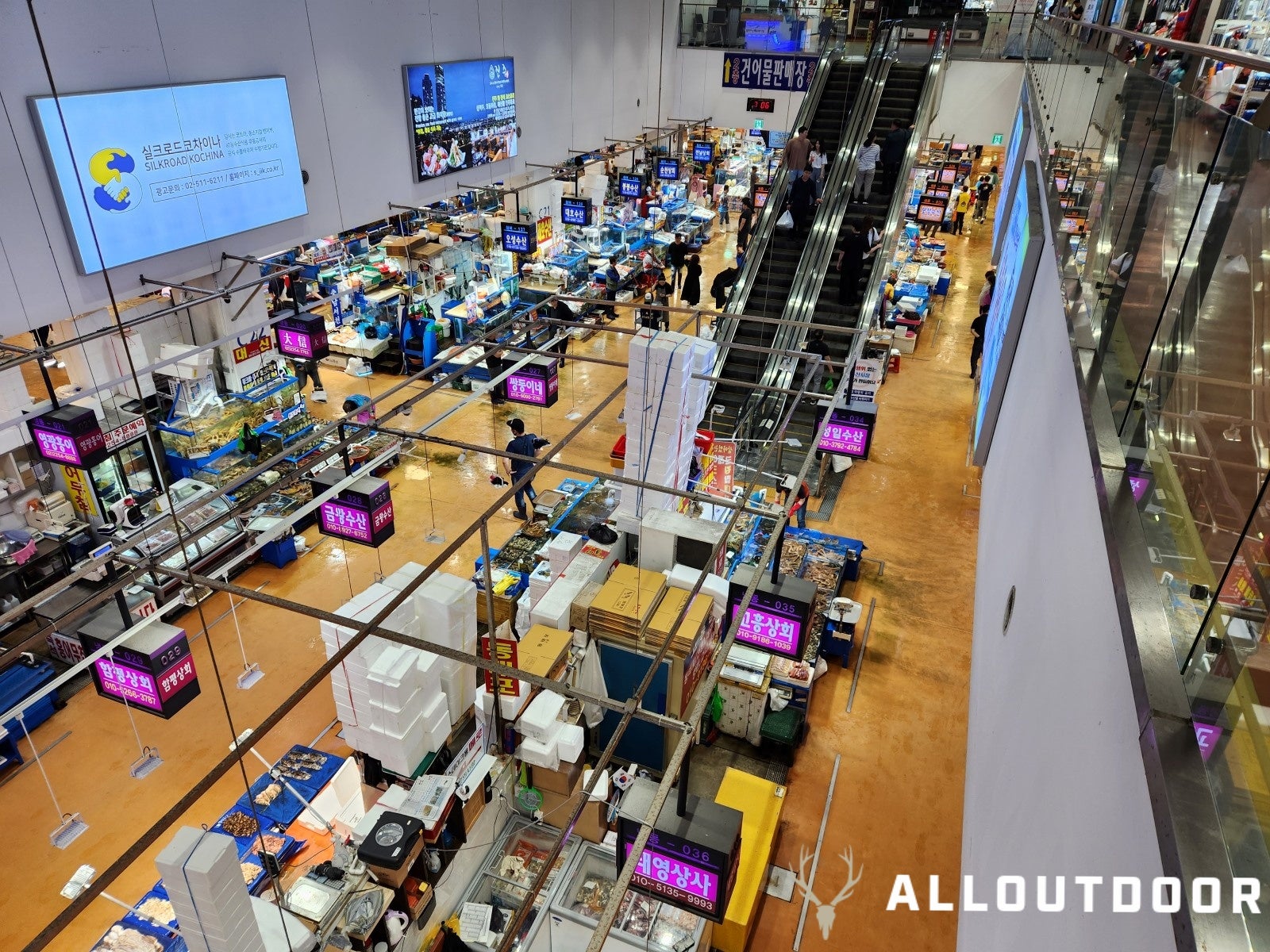
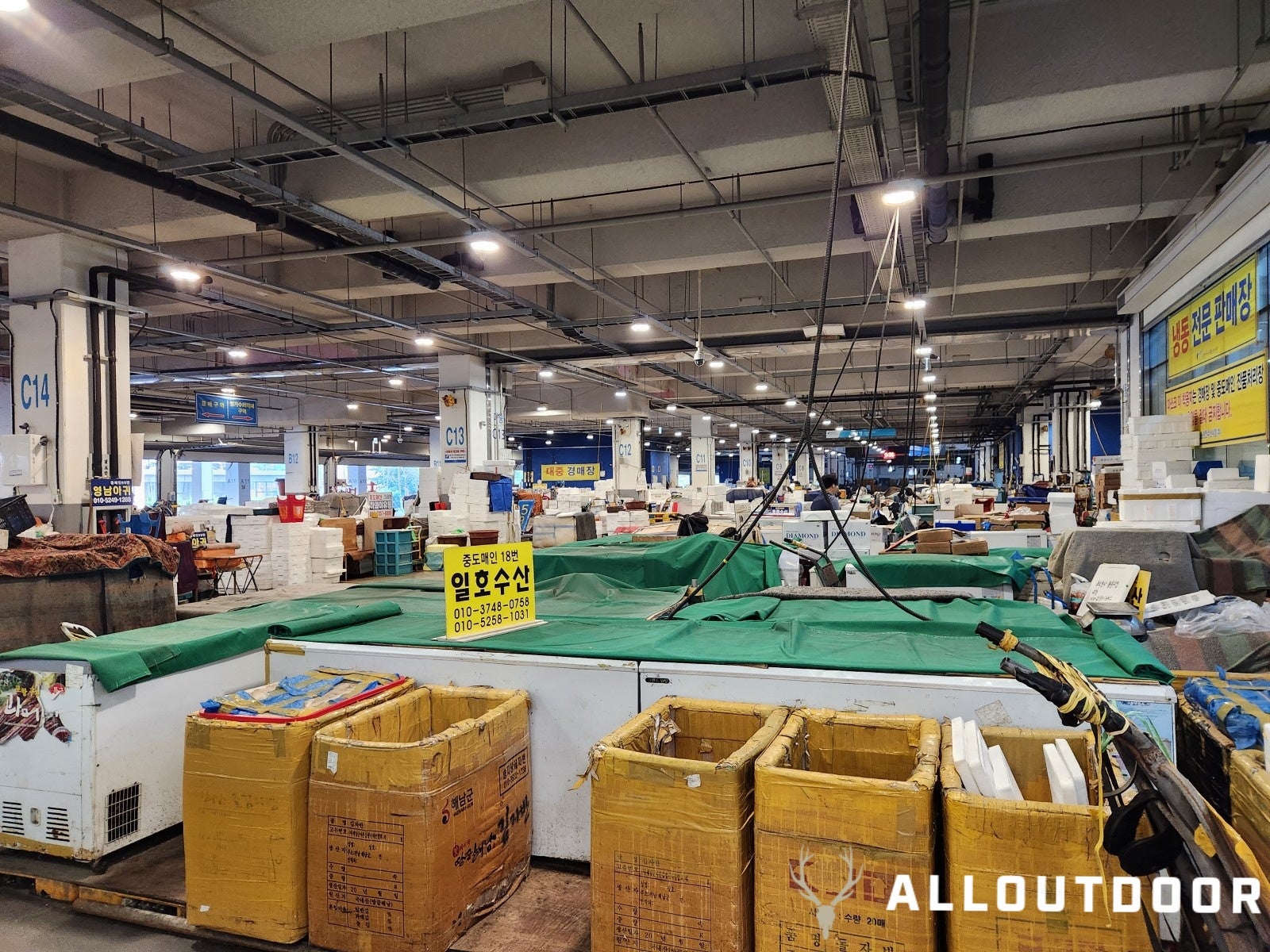
This place is a massive multi-floor building that has over 700 vendors and moves hundreds of tons of seafood every day. The Noryangjin fish auctions start at 3 am moving literal tons of fish per lot. The main floor sells mainly live fish and shellfish, and the floor above sells a lot of salted and dried fish.
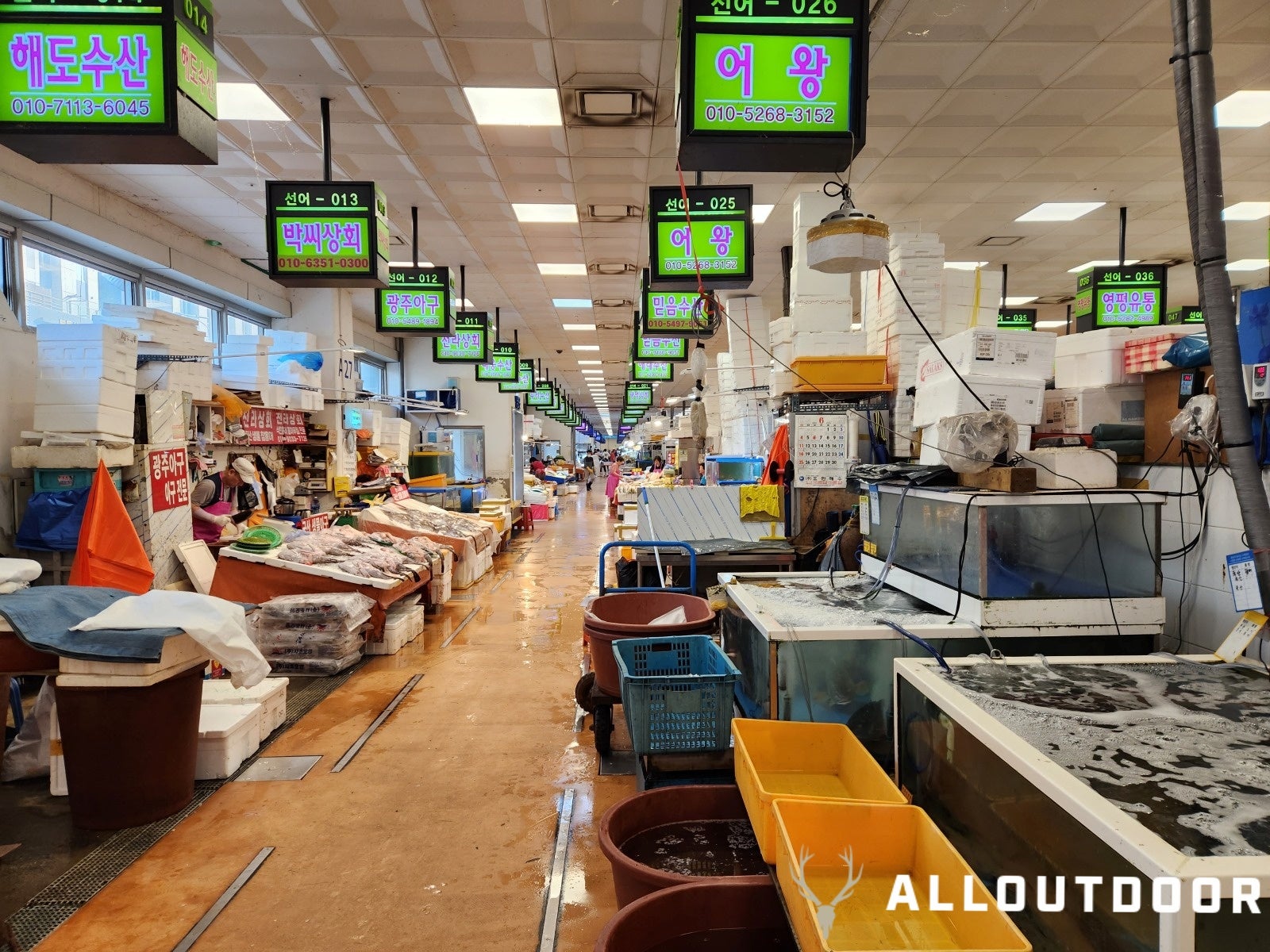
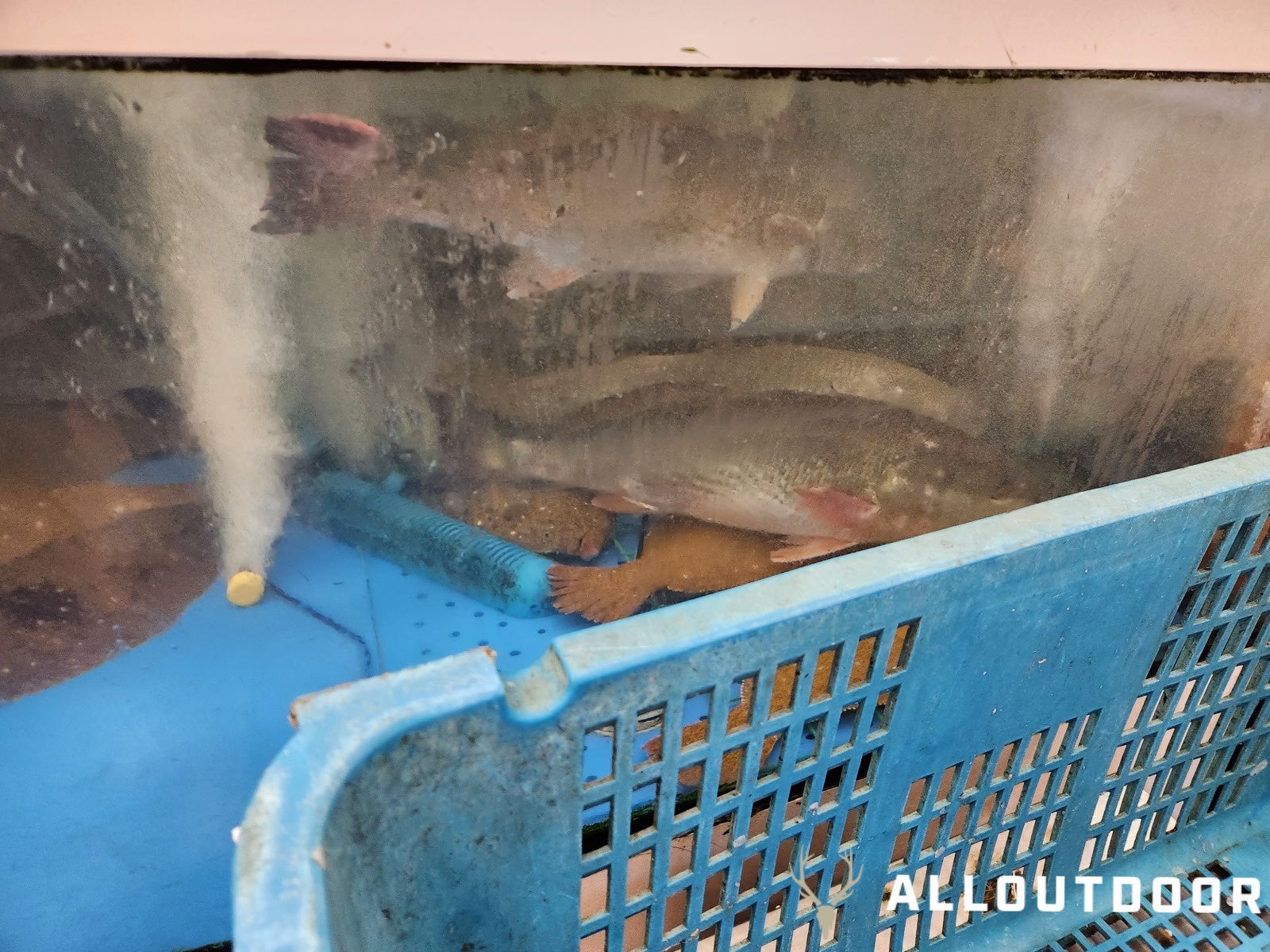
Noryangjin Fish Market is like a public aquarium where you can buy and eat the exhibits at. There are tanks of live fish for as far as the eye can see here. Make sure to wear closed-toed shoes here, and avoid fabric shoes as well. The floor is wet and fishy for obvious reasons, while they sell to the public this is also a wholesale that supplies markets and restaurants for the whole region. Also while you can look at the fish, don’t try to touch them unless you are buying something. These are all businesses trying to make money here.
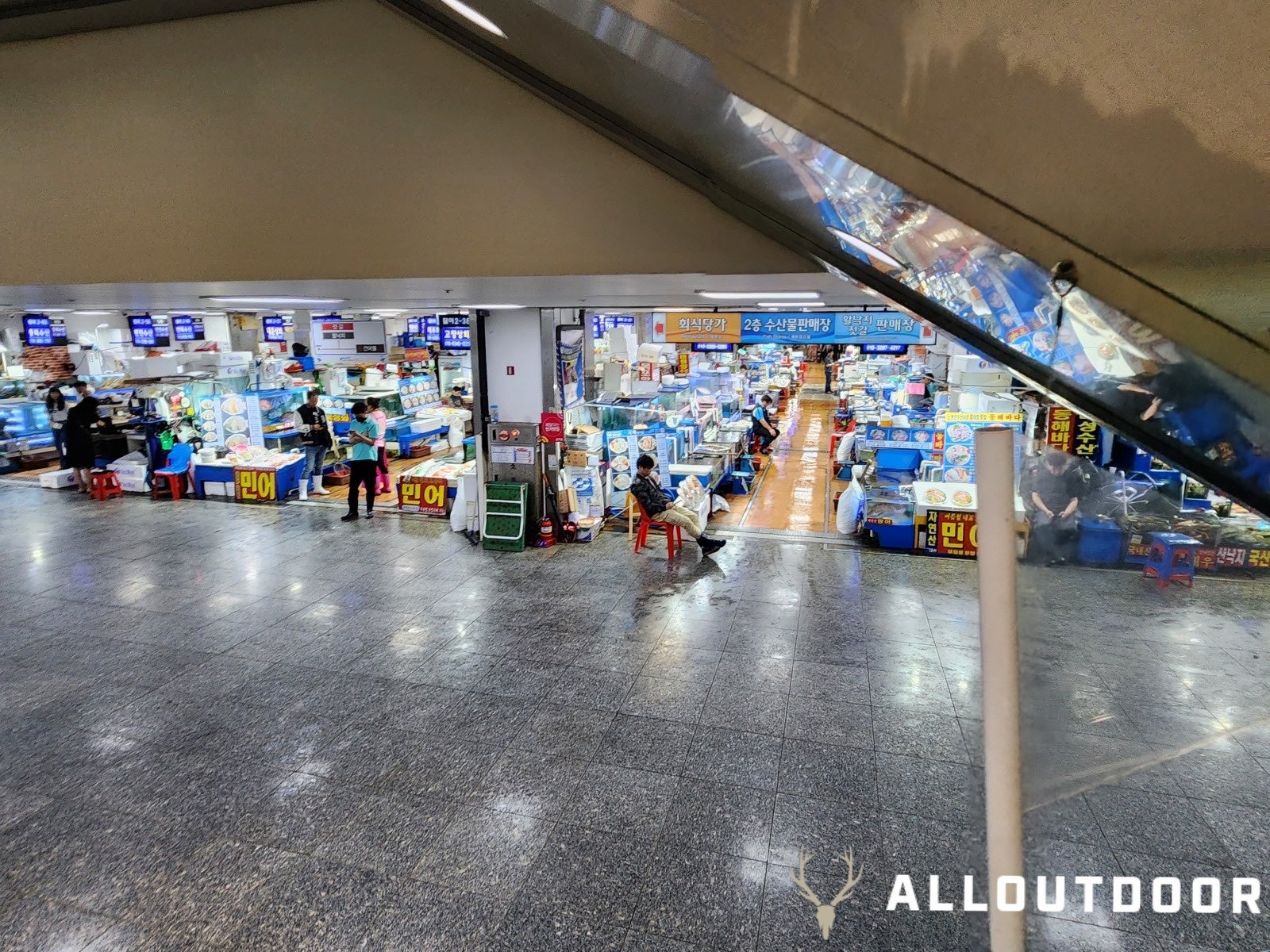
The vendors mostly speak Korean here with some speaking Chinese as well. I didn’t hear any English but with it being Seoul more than likely some of them do speak it. Like at the other markets I visited, the vendors can be a bit pushy. They’re not trying to be rude, but just want to make that sale. Don’t get pressured into buying something you don’t want. The market also has prices listed on their website here so reference this to make sure you aren’t paying too much for something.
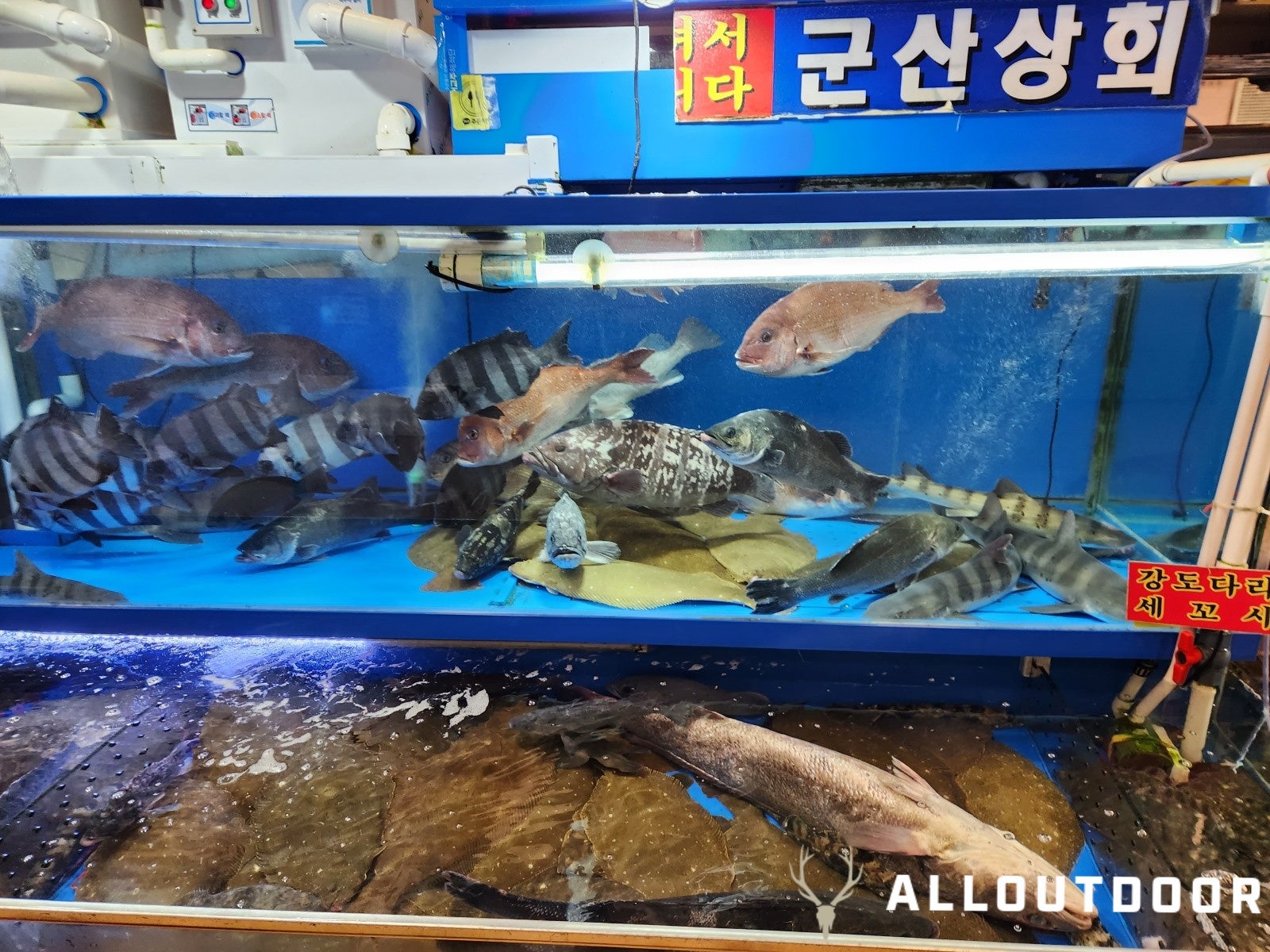
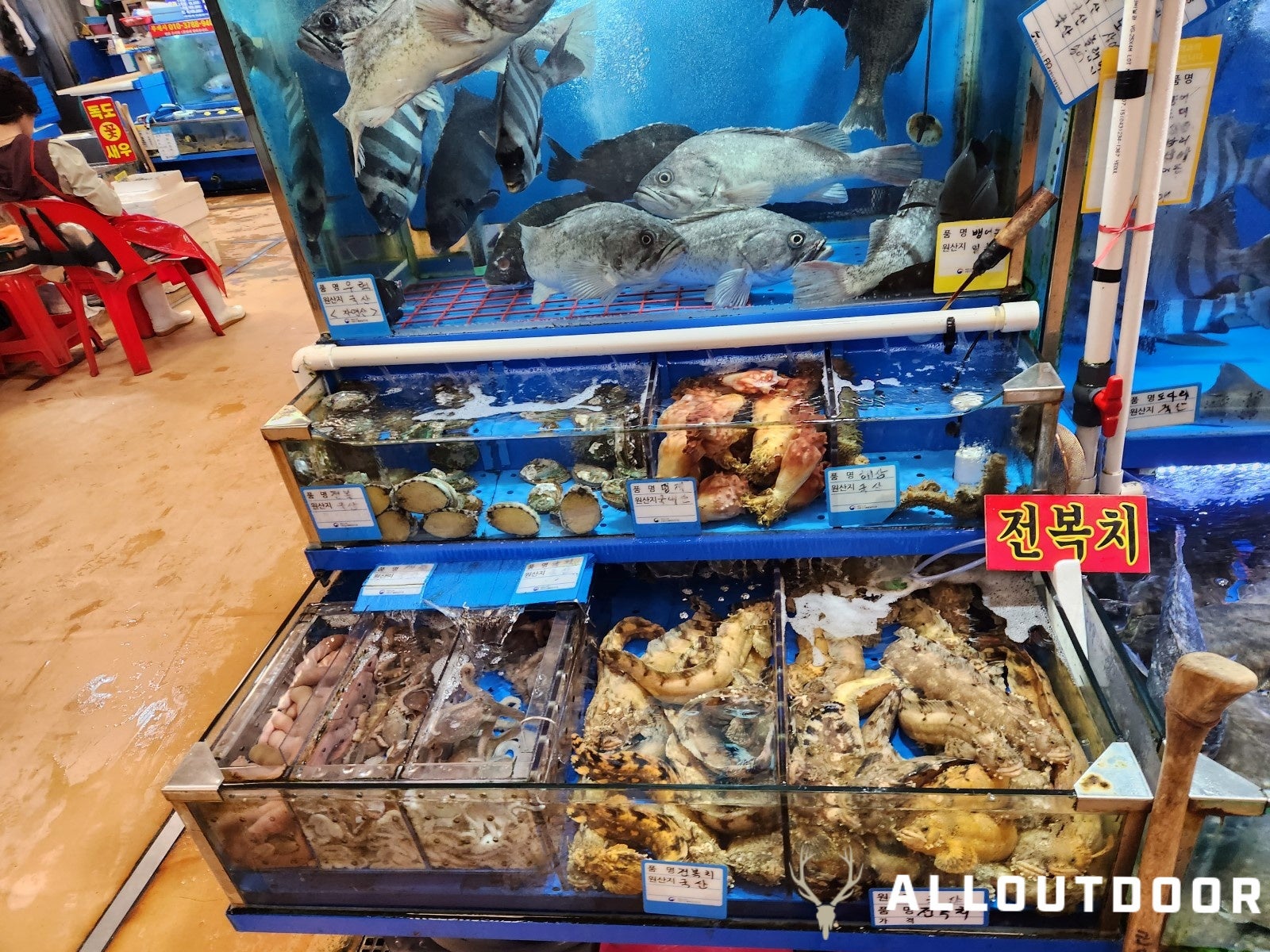
The big tourist thing to do here though is to buy some seafood and then have it prepared to eat. Which is part of why I wanted to come here around dinnertime. The live seafood vendors downstairs are partnered up with the restaurants upstairs. So once you find the seafood you want let them know you want to have it prepared and they’ll contact the restaurant they are partnered with to let them know you’re coming up.
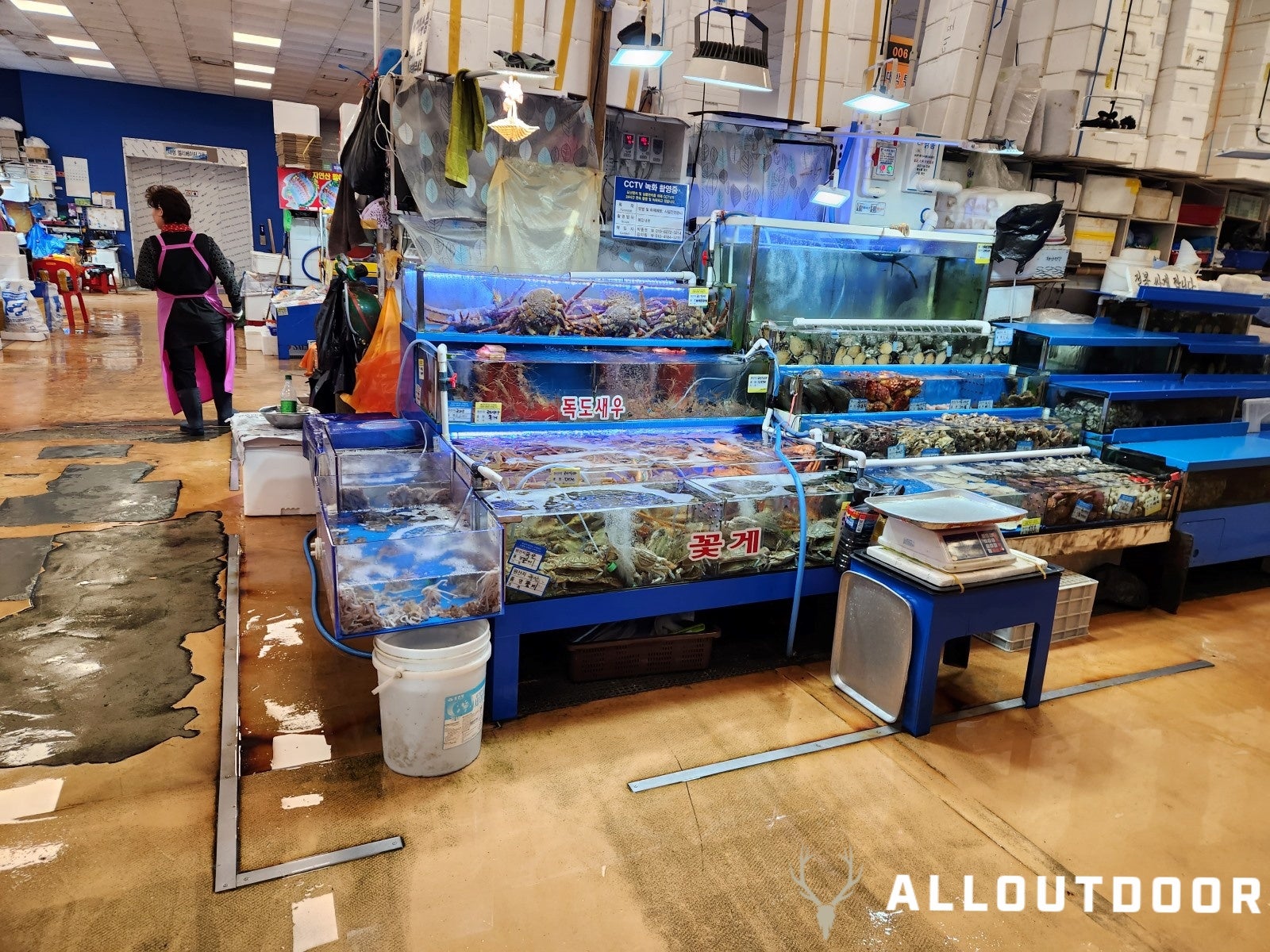
So after exploring around and finally settling on a place to buy some dinner from, I told the shellfish vendor I wanted a live snow crab, a live octopus, and a small conch. I also told the vendor I wanted a sashimi platter as well. We picked out the exact sea creatures we were going to get and paid for them first with him. Then went with the vendor to his partner an aisle over that dealt in just live fish, whom we bought a sashimi platter from. After we got everything bought on the first floor a rep for the restaurant came down.
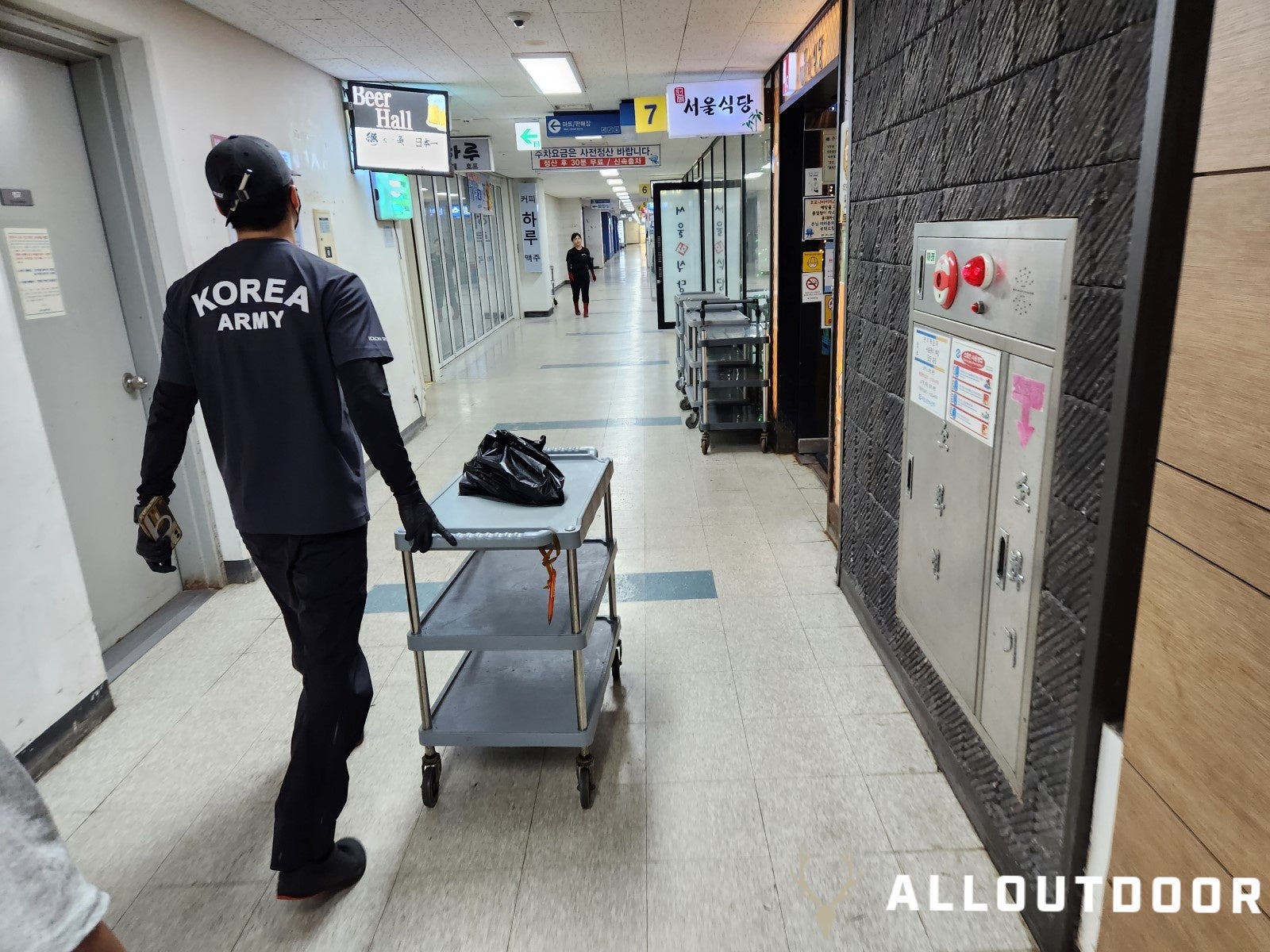
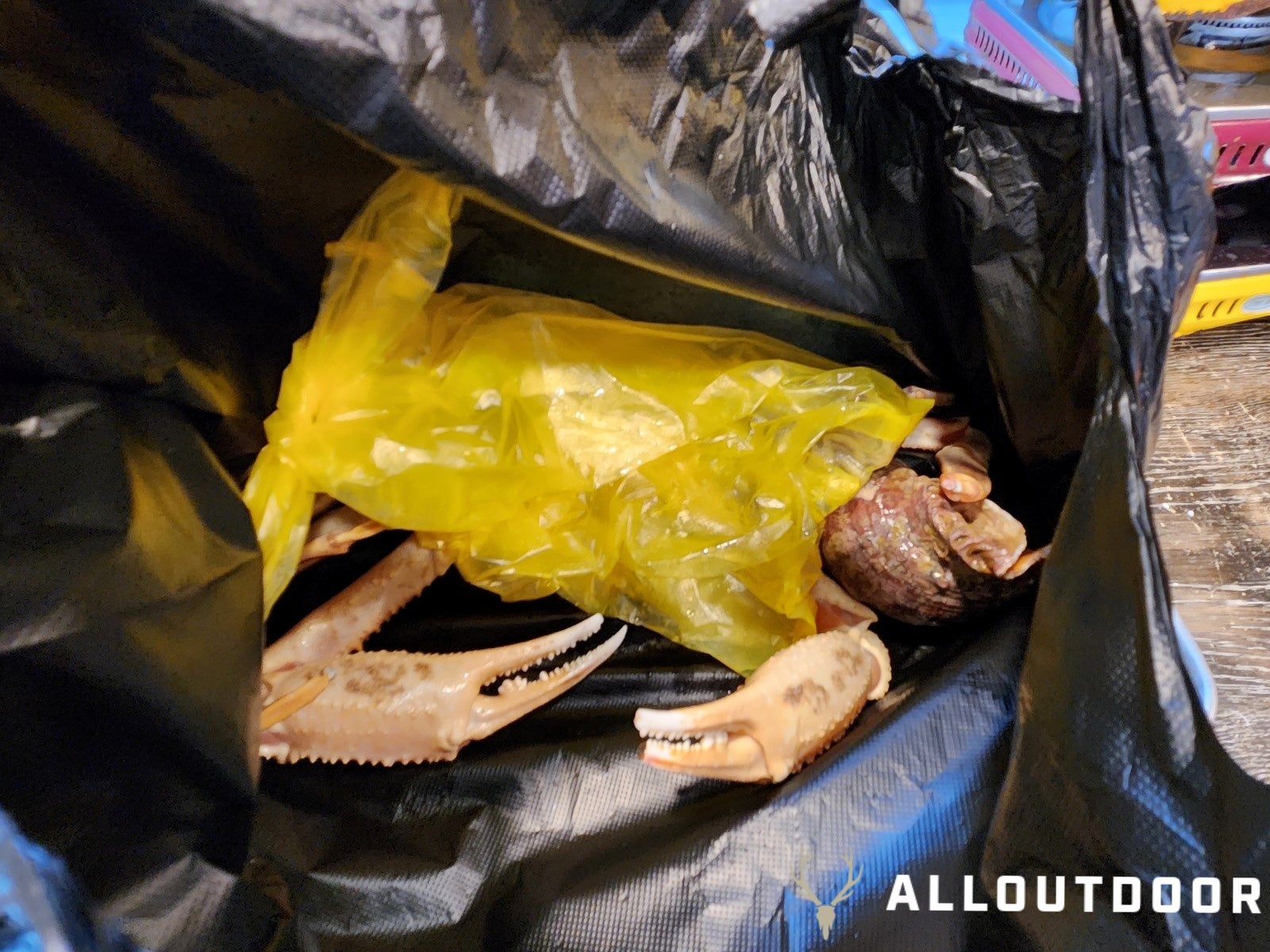
We followed him through the market and went up a couple of floors on the elevator and then followed him down the halls of different restaurants till we reached the partner restaurant. There the shellfish was dropped off and the host at the restaurant asked how we wanted everything prepped. We went the simple route and just had the crab and conch steamed and the octopus raw. They offer different ways to prepare the seafood but as it gets fancier the more it costs. We wanted to do the spicy fish soup as well, but I think there was a misunderstanding and we ended up not getting it. I recommend you do get it if you go here, it’s very tasty and honestly considered to be more proper manners for eating at the restaurant, it does cost a little more though but not a lot.
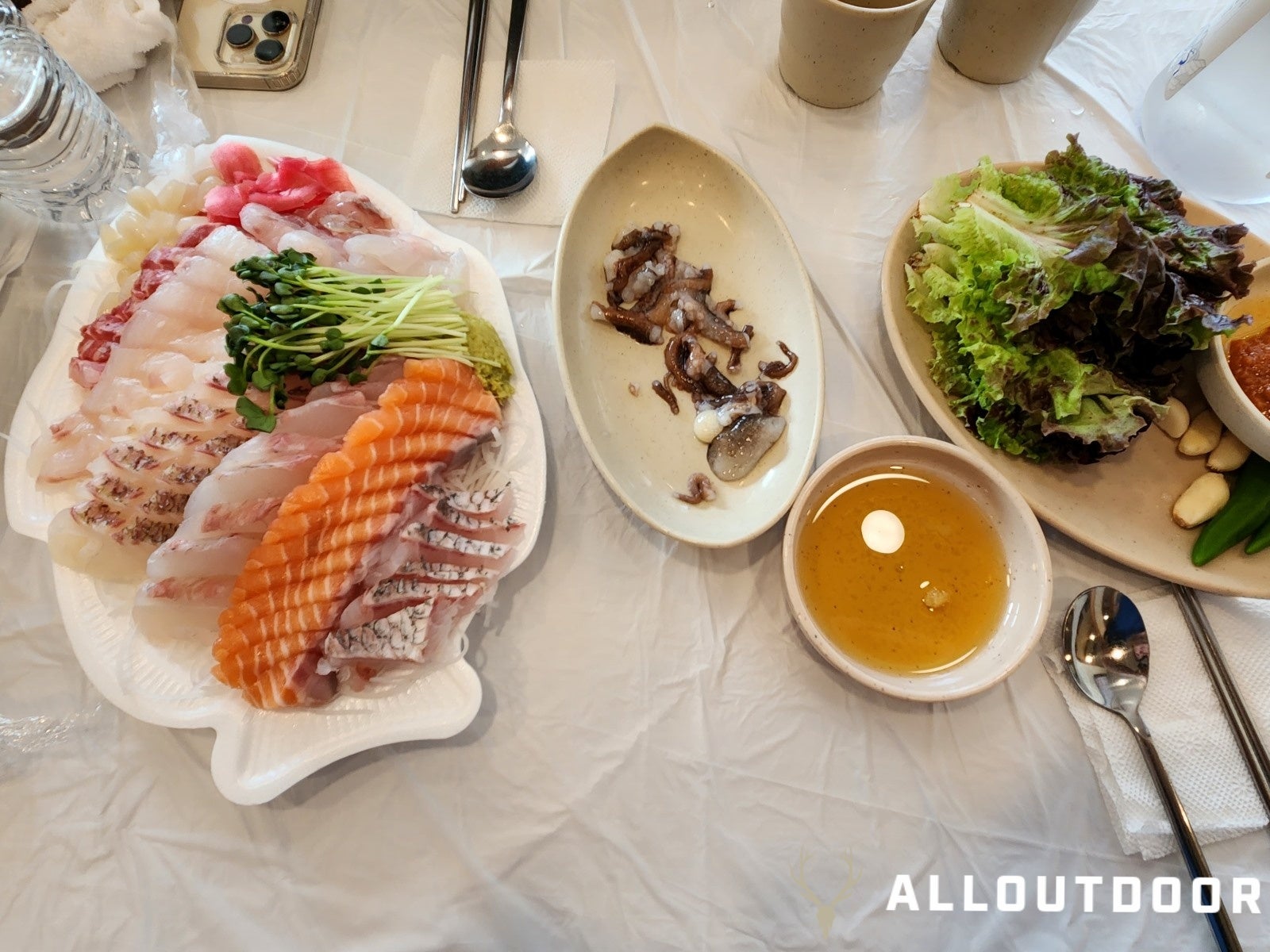
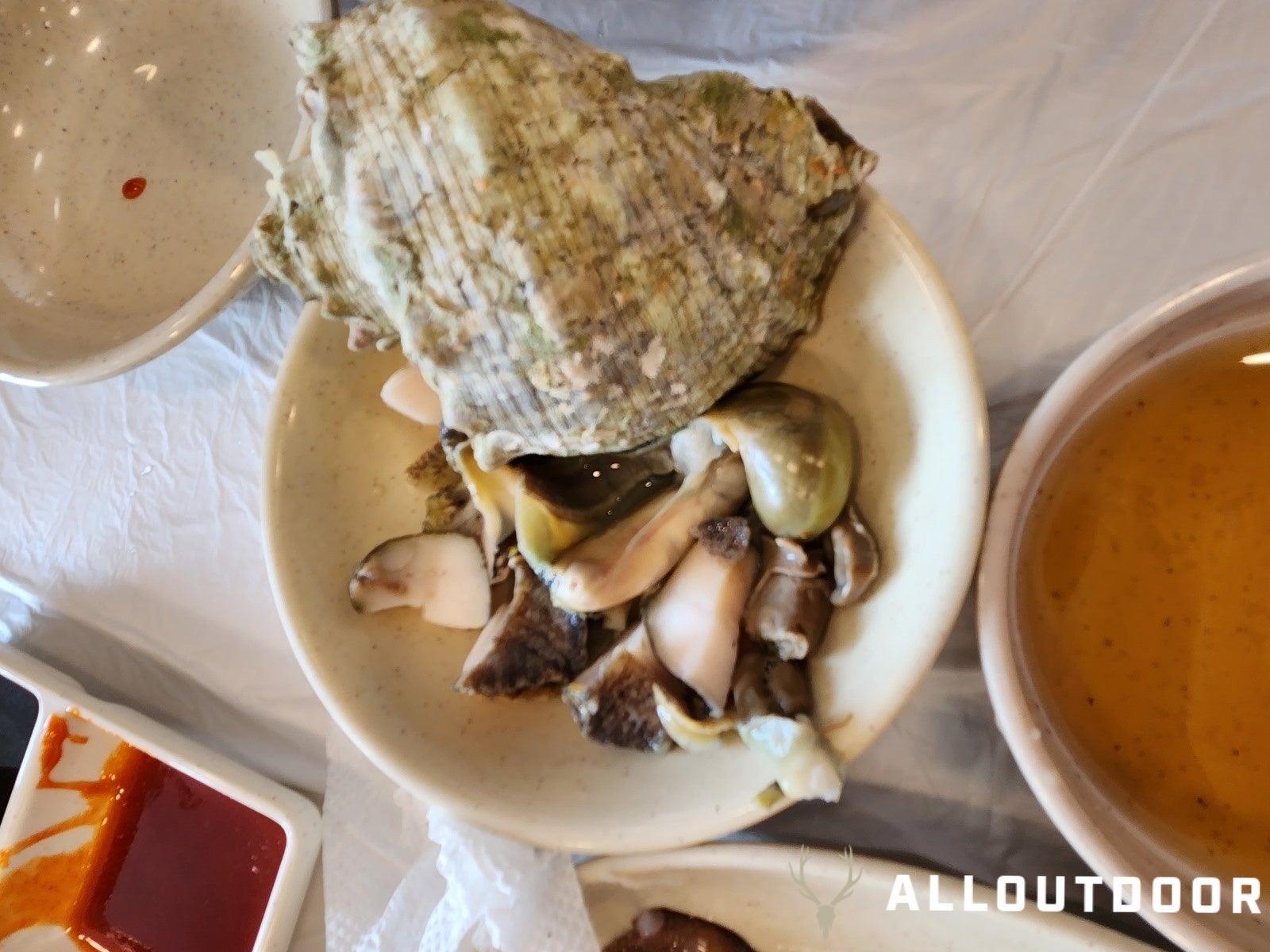
After our order was taken, we were then seated at a table. The sashimi and octopus came out pretty soon after we got seated. The sashimi was served with some red leaf lettuce, ssamjang, raw garlic, and chili peppers. The octopus was chopped up and still moving, and served with sesame oil and salt to dip it in. All of it was incredibly fresh considering the fish was swimming around not that long ago. The texture is very different than something you will normally find stateside. When the fish is this fresh the sashimi is chewier, making for a good textural experience.
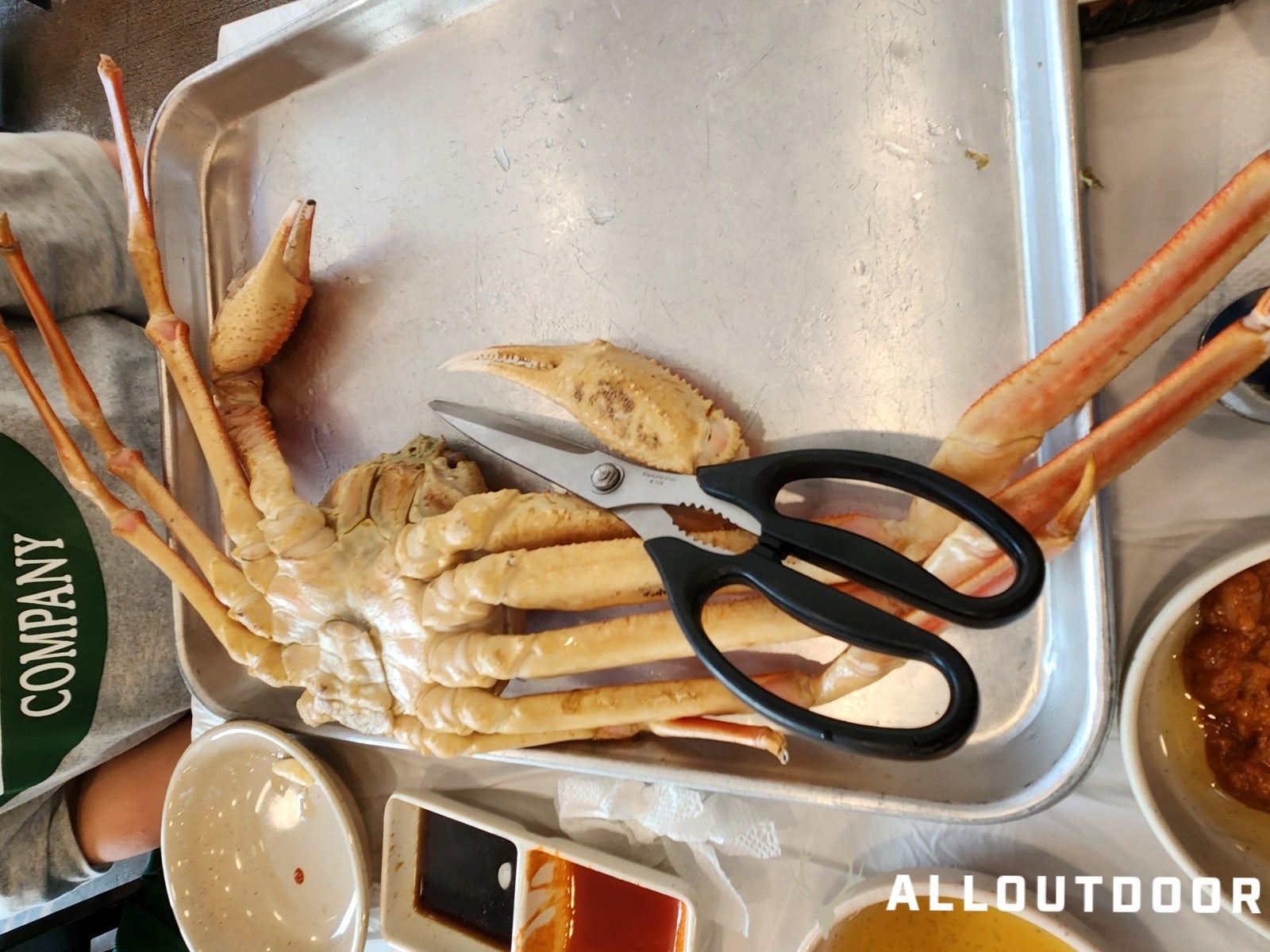
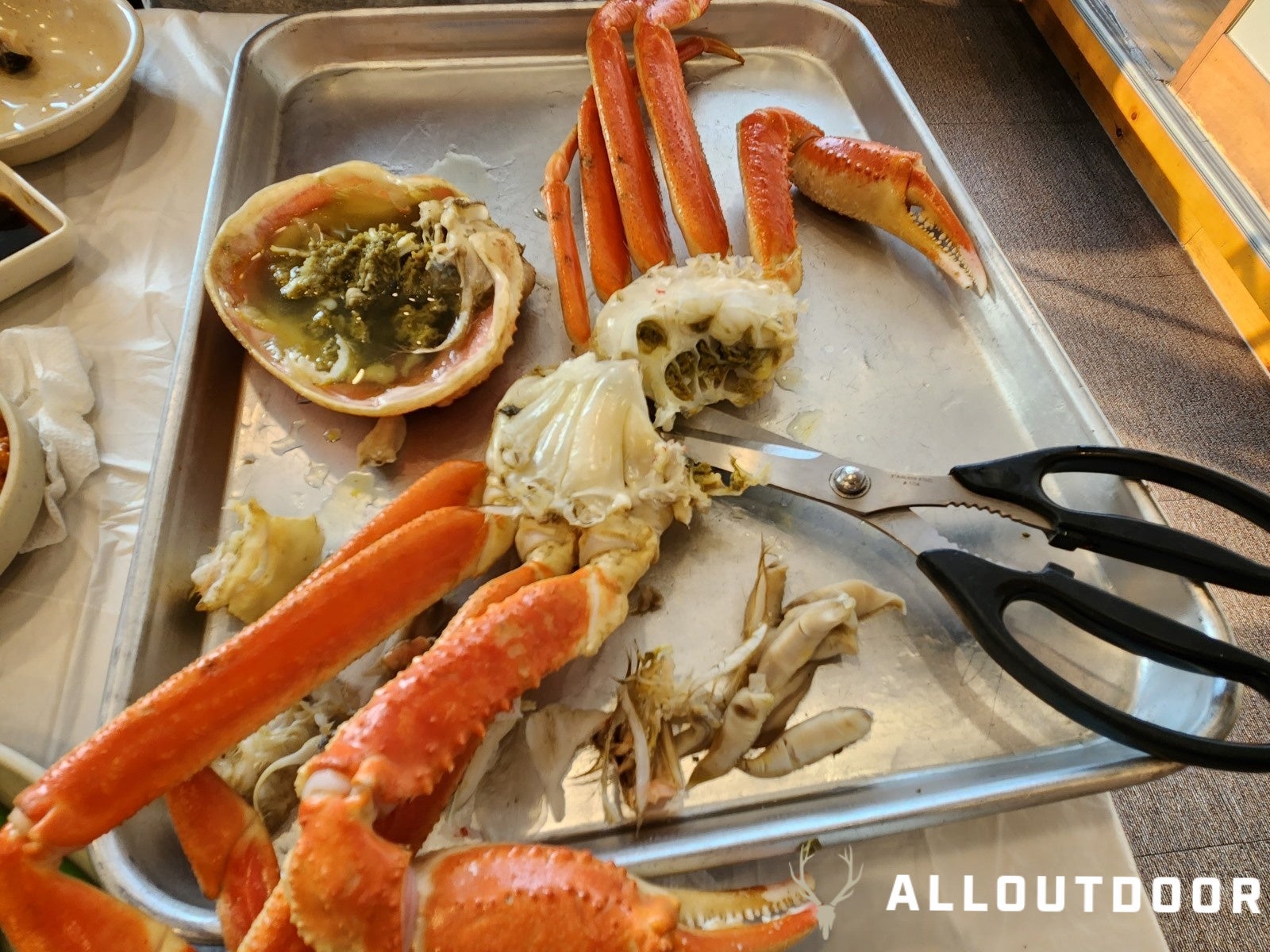
Soon after the sashimi, the snow crab and conch came out. While I can get snow crab pretty much anywhere in the US as frozen clusters. I have never seen snow crab available live and whole in the States. So I had to get one while I was here. They steamed the crab for me and gave it to use upside down. They did this for a reason, to keep all the juice from the crab tomalley from leaking out. While I’m not the biggest fan of the stuff, a lot of people do like mixing the tomalley into rice and eating it that way. The meat though was amazing, I know they say the freezing process is so fast it doesn’t affect the quality of snow crab, but I feel like it does a little bit. This smorgasbord of seafood came out to a total of 110,000 won ($84 USD) including the cost of having everything cooked. Probably one of the priciest things we ate in Korea, but pretty cheap considering what we had. Next time in Seoul I’ll definitely be going back to Noryangjin Fish Market to have another insanely fresh seafood meal.
